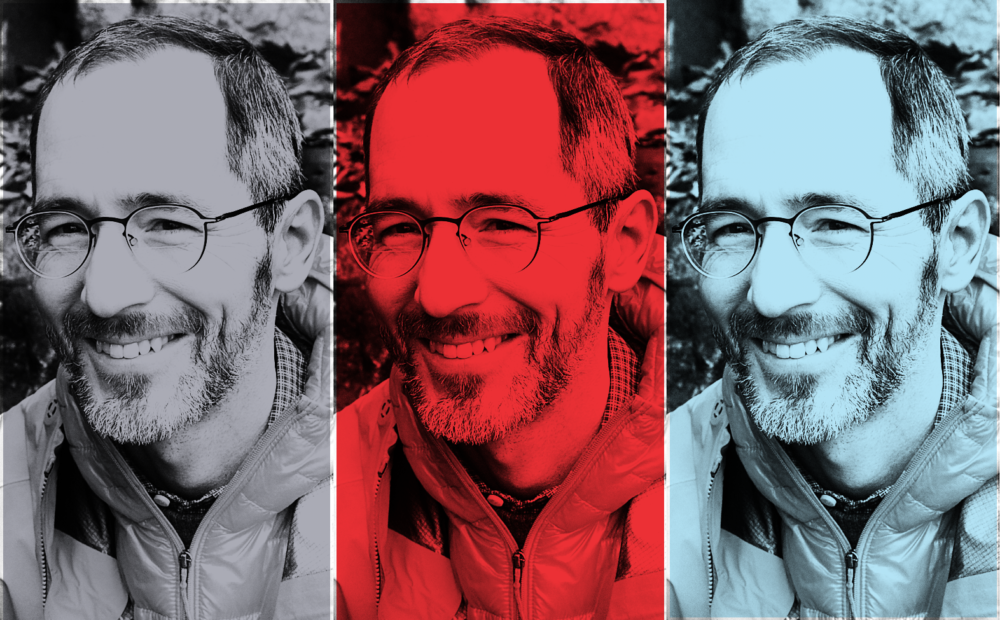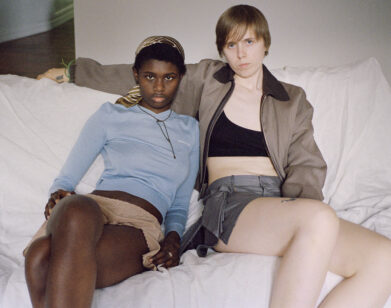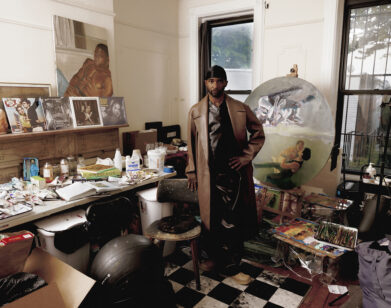Has Caleb Crain Written the First Occupy Wall Street Novel?

Caleb Crain’s exquisite first novel Necessary Errors (2013) captures a loose band of young expats who land in Prague right after Czechoslovakia’s Velvet Revolution. Unable to take part in the heroism of a revolution, they take part in each other. Upon its release, Necessary Errors was not so much a revolution as a revelation—that exciting discovery being Crain’s gorgeous, sidewinding, insightful prose style; he arguably writes some of the finest sentences in American fiction today. At the time, the Brooklyn-based author was a first-time novelist, but a longtime writer and critic (he’s a regular contributor at The New Yorker), and that wisdom was evident in the deft handling of a coming-out, coming-of-age story that served as the novel’s spine.
Now Crain is back with his sophomore novel, Overthrow [Viking], and this time, he made sure his characters didn’t miss the revolution. In fact, they are right at its epicenter, in the fall of 2011 at the encampment of Occupy Wall Street. (While Crain purposely does not mention New York City as the setting of the book, it was easy for this reader to conjure the liveliness of Zuccotti Park, as well as several other local neighborhoods). Overthrow follows a ground of young progressives who are determined to turn the tables on power through the use of telepathy. Such an alternative strategy involves cracking internet passcodes via psychic readings supplied by the group’s most sensitive intuitionists. While the machinations of resistance and control form the plot, the real theme of Overthrow is loyalty: Who do you protect? And how much of yourself will you give to ensure their safety? As with Necessary Errors, the sentences in Overthrow sting: “….Raleigh wondered why Matthew had chosen graduate school in English literature instead of law. It was probably the sort of mistake that someone gay was more likely to make—pursuing the aura left behind by power instead of power itself.” I met up with Crain at a café near his home off Prospect Park to discuss tarot cards, Occupy, and whether we should indeed be cowering in fear of our online secrets.
———
CHRISTOPHER BOLLEN: Overthrow is moored in the days of the Occupy movement. I’m wondering if a visit to Zuccotti Park in the fall of 2011 sparked the idea for the novel.
CALEB CRAIN: I’d finished my first novel Necessary Errors in 2011, and I was in that fallow period after completing a book, where you’re just sort of—
BOLLEN: Looking around for inspiration.
CRAIN: Yeah, and I did go to Zuccotti Park a few times. I had friends who were involved. I didn’t take part in any official capacity, but I took pictures and wrote about it in my diary and did a little squib on it for the New Yorker. I suppose I thought I’d write something, but I didn’t go there in the mindset of a novelist.
BOLLEN: I went down there too. I suppose every writer felt the pull to visit this interesting youth movement boiling up in their own backyard.
CRAIN: I was genuinely moved by what I found there. It was very exciting and hopeful and, of course, the middle-aged part of me thought it was doomed but…
BOLLEN: I got that vibe from your New Yorker squib. It was a defense of Occupy, but a kind of on-the-fence defense.
CRAIN: I was trying to acknowledge my own ambivalence, that mix of “These kids, what are they doing?” and also “How great that they’re doing it!” The character Matthew, in my novel, possesses some of that same ambivalence when he encounters it too. I thought that would help bring the wary reader into the group.
BOLLEN: While reading your novel, I kept thinking about what the impact of Occupy has been. What do you think its legacy is? Because certainly all their protests against Wall Street didn’t vanquish corporate greed or redistribute wealth or stifle the power of the one percent.
CRAIN: I don’t think its message has vanished. I think you can trace movements like Black Lives Matter out of Occupy. And when Hurricane Sandy hit in 2012, it seemed like Occupy came back to life. I saw some of the same faces volunteering at various hurricane relief groups. I think it’s certainly entered the bloodstream of the Sanders campaign, and Warren’s campaign too. It was at Occupy that you first heard so much public anger about black people being systematically harassed by police. Afterward, those messages began to break out in the wider culture. It certainly changed the conversation.
BOLLEN: I remember when Occupy really got traction, it seemed so long overdue. Like, oh finally, a vital protest group coming out of the young generation. Mine, the generation before, was pretty hopeless on that front. In Necessary Errors, you had these young Western expats living in Prague right after the pro-democracy revolution there. There was a sense that they had just missed this great historical moment. In Overthrow, you’ve chosen a group of young men and women who are right at the heart of a revolution—or at least they are trying to be.
CRAIN: I do see that as the link between the books—that sort of wanting to be part of a movement where people are liberating themselves. That interest may be particularly resonant as a gay person.
BOLLEN: One thing I admired about the start of Overthrow is how Matthew falls in with this anarchist group because of his sexual attraction to Leif. It’s rarely mentioned, but absolutely the case, that often people get involved in movements because of a kind of sexual or romantic interest. It isn’t all cerebral. You’re seduced by the company. There are a lot of love stories inside something like the Weather Underground, which was full of these attractive, charismatic figures. But it’s so rarely discussed.
CRAIN: Right, it has a hold of you in a way that’s beyond just the explicit, political content.
BOLLEN: Necessary Errors is such a watershed gay novel. Overthrow has a gay romance at its heart as well. I wondered if you felt the difference between writing a “gay” novel ten years ago compared to the far more open, inclusive culture we find ourselves in today.
CRAIN: When I finished Necessary Errors, I was in my mid-forties and didn’t have any idea what was going to happen with it, or whether anyone would even want to publish it. It was kind of touch and go when were selling it. Then it came out as a paperback original, which is sort of what they do when they say, “We like the novel but we don’t think we’re going to make any money off of this.” But my editor and I were worried. Like, “It’s a gay book, is it going to sell? How are we going to position it?” I said, “Don’t worry about the gay readers because they’ll find it. We need to try to sell it to the straights.”
BOLLEN It’s true. There was a time I’d read any book with a gay theme because they were such rare animals. Now we are much more spoiled as readers.
CRAIN: In the last few years, a lot of gay novels have started to break out and become publishing sensations. It feels like a different climate. I do wonder, now, will this last? Will this also crash and burn, or have the walls finally tumbled down? In one way, it feels like a better environment to be publishing. But it also feels like a worse environment because the culture is just so intoxicated with the politics of rage that a lot of people don’t seem to have the bandwidth to step away and read about an imaginary world for a few days.
BOLLEN: I’m curious how you came upon the idea of having your anarchist group rely on the power of telepathy? Why did you make their weapon being psychic? Are you interested in psychics?
CRAIN: No, not really. [Laughs.]
BOLLEN: I wish I had thought to do this interview over tarot cards. Have you ever had a reading?
CRAIN: I do have a tarot card deck that I bought when I was twelve. It’s a French one, from when I stayed in France for a month with a family who played a card game with tarot cards. But I don’t know how to predict the future with them. I loaned my ignorance of the right way to use tarot cards onto my characters, who also don’t know!
BOLLEN: I figured telepathy was a way of coming up with a more mystical language for this group that opposes the very dense legal and technological vocabularies that those in power speak. It was your method of showing the war of opposing voices—they don’t even speak the same language.
CRAIN: Yes, I wanted there to be these different vocabularies. And I did a fair amount of research about topics like hacking. It was from a wave of journalism before Edward Snowden. I think today if you wrote a novel about hacking it would be much darker and more nefarious. It’s become professionalized. I also read briefs on what to do when you’re arrested, basically from websites of defense lawyers who are chasing business. You know, what happens when you appear in a courtroom.
BOLLEN: Would you say you are pessimistic about the role technology plays in our lives? Your only other choice besides pessimistic is paranoid.
CRAIN: I’m probably more paranoid than I should be. I mean, this is my cell phone. [Pulls out an old model phone.] I’m reaching the outer limits of being able to keep functioning with this phone. I’m totally a parasite on my husband’s cell phone. Like, I had to drive out to New Jersey the other day and I had to draw a map on a piece of paper because otherwise I wouldn’t have known where I was. And I got lost anyway.
I do struggle with “Am I safe on the internet,?” and also “Do I have any choice but go on the internet,” just as everybody else does. I feel like we need to have a voice through some kind of government structure on how these companies are managing our secrets and our privacy. The current laws are either too draconian or not draconian enough. But almost everything on the internet is communicated through third parties, fourth parties, fifth parties, and yet people still think of it as private.
BOLLEN: I think most people probably operate on the belief that they’re not important. We can sleep at night comforted by the thought that we are too insignificant to attract much notice.
CRAIN: It’s like you’re a zebra in a herd. You know you’re safe from the lions because all the other zebras are with you. But if the moment comes when you’ve got a bad leg, suddenly that lion looks a little different.
BOLLEN: You often garner comparisons to the great Henry James. Or, at least, that James has an influence on your prose style. In Overthrow, you make reference to a lesser known Henry James novel, Princess Casamassima, whose plot revolves around a terrorist organization. I kept thinking of Joseph Conrad’s The Secret Agent while reading your book, which is also one of the canonical terrorist novels, with the professor who walks around with a switch on him so he can blow him up at any moment. It’s like documents that could be unleashed on the internet with one click of the button.
CRAIN: The reason I mentioned Princess Casamassima is because it’s a book with an upper class character and a working class character and they are both involved in this anarchist group. But there’s another Henry James book I was thinking about called The Sacred Fount. It’s about a couple that may or may not be vampires. As a reader, you’re wondering, “Does Henry James really think there are vampires?” It seems to me that there are two kinds of books about vampires out there. There’s the kind where vampires are real, and if the character doubts their reality, the vampires are going to get him. And then there’s the kind of book where vampires are not real and if a character thinks that they are, they’re deluded and eventually get their comeuppance or fall prey to their own delusion. But what I like about James, and what I thought would be interesting to write, is a novel where you have this fantastical element that is never resolved. That’s what I was thinking in line with the telepathy. I wanted the reader to be left unsure whether this group had these powers.
BOLLEN: I kept thinking certain characters were psychic, and then a chapter later, I had to walk that assessment back. I have to say one of the things I love must about your writing is the room you give your characters to grow and change. They never feel resolved—and I mean that as a compliment. So many characters are really a list of adjectives and they lumber through a novel as those set adjectives without any chance to become anything more. You give your characters so much room to grow and shift. How do you keep them so open-ended?
CRAIN: My metaphor is that it’s like Google Earth. At first, you see that everything’s sort of fuzzy from a distance, and then as you get closer, it becomes sharper. That’s how I feel about plot and character. I don’t fully know what’s in a scene until I’m writing it.
BOLLEN: How did you settle on “overthrow” for the title?
CRAIN: At first, I thought it should be called “Candor.” But I wanted the title to be louder. I liked the idea of the self being overthrown, that you’ll pick up the book thinking that it’s about overthrowing the government, and it turns out it’s not the government so much as people’s ideas of themselves.






